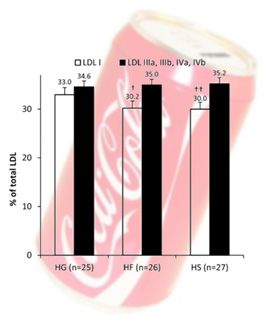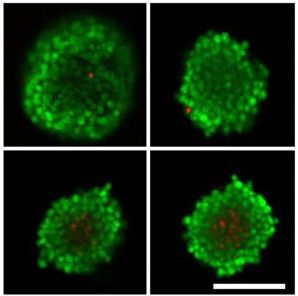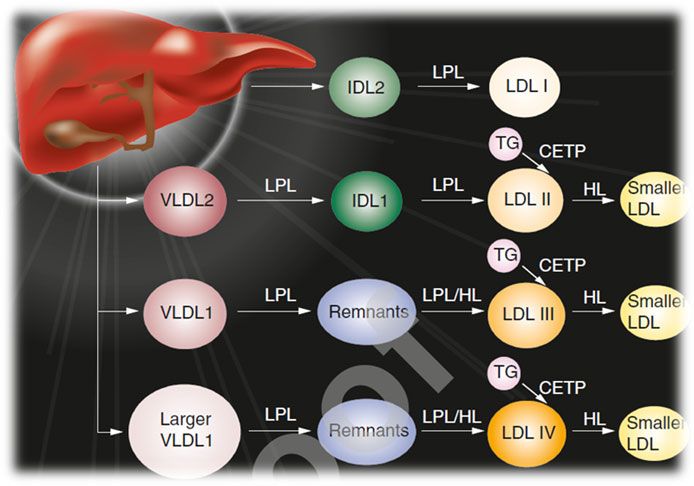Metabolic stress
Wir untersuchen den Einfluss von Stressfaktoren auf den menschlichen Zucker- und Fettstoffwechsel.
AG Gerber / Metabolischer Stress
Der menschliche Stoffwechsel besteht aus einer Vielzahl von biochemischen Prozessen, welche dafür sorgen, dass von aussen dem Körper zugeführte Substrate (Sauerstoff, Nahrung) im Körper richtig umgesetzt werden und dem Körper genügend Energie und Aufbaustoffe zur Erhaltung seiner Funktionen zur Verfügung stehen. Diese Vorgänge sind verschiedensten Stressfaktoren ausgesetzt, welche zu Fehlfunktionen des Stoffwechsels führen können. Nicht zuletzt hält unsere moderne Umwelt solche Stressfaktoren bereit (z.B. veränderte Ernährungsgewohnheiten), an welche sich der Körper während der Evolution nicht gewöhnen konnte. Unsere Gruppe untersucht den Einfluss solcher Stressfaktoren auf den Organismus sowie ihre Rolle in der Entstehung und Therapie von in unserer Gesellschaft häufigen Krankheiten wie Adipositas, Typ 2 Diabetes mellitus oder nicht-alkoholische Fettleber.
Research Topics
Effects of Sugar Sweetened Beverages on Glucose and Lipid Metabolism

Soft Drinks are usually sweetened with different sugars. Among the most often used sugars are glucose, fructose or sucrose. During the past years, many studies provided evidence that not all sugars do affect human metabolism in the same way. In particular, fructose (when used as sweetener) was shown to have adverse effects on many parameters of human health, although it is a naturally occurring sugar that is contained in many fruits. With our previous studies, we were able to demonstrate that fructose, when compared to glucose, exhibits many such negative effects. In a randomized trial in healthy young men, we observed a worsening of the cholesterol particle profile towards a more atherogenic pattern. Furthermore, we could show an increase in insulin resistance induced by fructose, which is one of the hallmarks of type 2 diabetes mellitus. Our current study, which again is designed as a randomized controlled trial in healthy young men, aims at elucidating alterations in the generation and degradation of lipid particles after the consumption of differently sweetened beverages. This will allow to further quantify the hazardous potential of sugar sweetened beverages.
Interaction of hypoxia and zinc in pancreatic islets
 Pancreatic islets harbour beta cells, which are the cells that produce insulin and thus, control blood sugar levels. In diabetes, beta cell function is disturbed or even absent. Since beta cells rely on high amounts of oxygen for adequate function, pancreatic islets belong to the best-vascularized tissues in the body. Consequently, insufficient oxygen supply (hypoxia) has detrimental effects on beta cell function and survival. Pancreatic islet hypoxia was shown to play a role in the development of diabetes and is also one of the main obstacles regarding successful islet transplantation in patients with diabetes. We have previously shown that zinc, which is essential for the correct function of beta cells, as well as beta cell specific zinc transporters are reduced in hypoxia. Our current study aims at further unravelling the interaction of hypoxia and zinc in beta cells.
Pancreatic islets harbour beta cells, which are the cells that produce insulin and thus, control blood sugar levels. In diabetes, beta cell function is disturbed or even absent. Since beta cells rely on high amounts of oxygen for adequate function, pancreatic islets belong to the best-vascularized tissues in the body. Consequently, insufficient oxygen supply (hypoxia) has detrimental effects on beta cell function and survival. Pancreatic islet hypoxia was shown to play a role in the development of diabetes and is also one of the main obstacles regarding successful islet transplantation in patients with diabetes. We have previously shown that zinc, which is essential for the correct function of beta cells, as well as beta cell specific zinc transporters are reduced in hypoxia. Our current study aims at further unravelling the interaction of hypoxia and zinc in beta cells.
Further, in collaboration with the group of Roger Lehmann, we are conducting clinical studies in patients receiving pancreatic islet or pancreas transplantation.
Role of lipoprotein subparticles in cardiovascular disease
 A close link between quality (size, density) rather than quantity of low-density lipoprotein (LDL) particles with cardiovascular risk has been established. Many metabolic stressors alter the lipid profile towards a more atherogenic pattern. Our research is focused on establishing the value of lipoprotein subparticle distribution in determining cardiovascular risk in different specific populations and under different physiological and pathophysiological conditions. In healthy individuals, we could show that high altitude exposure, which commonly is associated with health benefits, resulted in a beneficial increase in LDL particle size.
A close link between quality (size, density) rather than quantity of low-density lipoprotein (LDL) particles with cardiovascular risk has been established. Many metabolic stressors alter the lipid profile towards a more atherogenic pattern. Our research is focused on establishing the value of lipoprotein subparticle distribution in determining cardiovascular risk in different specific populations and under different physiological and pathophysiological conditions. In healthy individuals, we could show that high altitude exposure, which commonly is associated with health benefits, resulted in a beneficial increase in LDL particle size.
Several of our studies were conducted in order to detect the adverse effects on LDL particles induced by fructose consumption (see above). Further, we conducted research in individuals with type 2 diabetes and prediabetes and could show that in these individuals, measures of small, dense LDL particles can predict changes in intima media thickness and insulin resistance. Further, we assessed the predictive value of small, dense LDL particles in patients with peripheral artery disease who underwent an intervention (angioplasty).
Cooperations
- Imperial College London, Cell Biology (Prof. Guy Rutter)
- German Diabetes Center Dusseldorf, beta cell biology (Dr. Bengt Belgardt)
- Medical University of Graz, Core Facility Mass Spectrometry (PD Dr. Harald Köfeler)
- University of Lausanne, department of physiology (Prof. Luc Tappy)
Fundings
- Swiss National Science Foundation SNF (Grant No 144204)
- European Cooperation in Science & Technology COST (Grant No 1304-37927)
- SwissLife Foundation
- Bangerter-Rhyner Foundation
- Theiler-Haag Foundation
Team

Maria Karsai: MSc / Philipp Gerber: MD, MSc / Bettina Geidl: PhD
Selected Publications
Small, dense LDL: An update
Gerber P A, Nikolic D, Rizzo M (2017)
Curr Opin Cardiol. 32(4): 454-459.
Insights into the Hexose Liver Metabolism-Glucose versus Fructose
Geidl-Fluck B, Gerber P A (2017)
Nutrients. 9(9): E1026
The Role of Oxidative Stress and Hypoxia in Pancreatic Beta-Cell Dysfunction in Diabetes Mellitus
Gerber P A, Rutter G A (2017)
Antioxid Redox Signal. 26(10):501-518
Glycemic control in simultaneous islet-kidney vs pancreas-kidney transplantation in type 1 diabetes mellitus: A prospective 13 year follow-up
Lehmann R, Graziano J, Brockmann J, Pfammatter T, Kron P, de Rougemont O, Mueller T, Zuellig R A, Spinas G A, Gerber P A (2015)
Diabetes Care. 38(5):752-9.
Hif-2α promotes degradation of mammalian peroxisomes by selective autophagy
Walter K M, Schönenberger M J, Trötzmüller M, Horn M, Elsässer H P, Moser A B, Lucas M S, Schwarz T, Gerber P A, Faust P L, Moch H, Köfeler H C, Krek W, Kovacs W J (2014)
Cell Metabolism. 20(5): 882-897
Hypoxia lowers SLC30A8/ZnT8 expression and free cytosolic Zn2+ in pancreatic beta cells
Gerber P A, Bellomo E A, Hodson D J, Meur G, Solomou A, Mitchell R K, Hollinshead M, Chimienti F, Bosco D, Hughes S J, Johnson P R, Rutter G A (2014)
Diabetologia. 57(8): 1635-1644
Small, dense LDL particles predict changes in intima media thickness and insulin resistance in men with type 2 diabetes and prediabetes – A prospective cohort study
Gerber P A, Thalhammer C, Schmied C, Spring S, Amann-Vesti B, Spinas G A, Berneis K (2013)
PLoS ONE. 8(8): e72763
Exercise prevents fructose-induced hypertriglyceridemia in healthy young subjects
Egli L, Lecoultre V, Theytaz F, Campos V, Hodson L, Schneiter P, Mittendorfer B, Patterson B W, Fielding B A, Gerber P A, Giusti V, Berneis K, Tappy L (2013)
Diabetes. 62(7): 2259-2265
Omega-3 Fatty acids: role in metabolism and cardiovascular disease
Gerber P A, Gouni-Berthold I, Berneis K (2013)
Curr Pharm Design. 19(17): 3074-3093
Moderate amounts of fructose consumption impair insulin sensitivity in healthy young men: a randomized controlled trial
Aeberli I, Hochuli M, Gerber P A, Sze L, Murer S B, Tappy L, Spinas G A, Berneis K (2013)
Diabetes Care. 36(1):150-156
Regulation of low-density lipoprotein subfractions by carbohydrates
Gerber P A, Berneis K (2012)
Curr Opin Clin Nutr Metab Care. 15(4): 381-385
